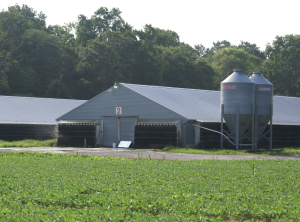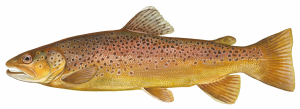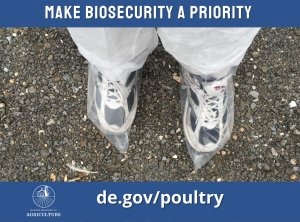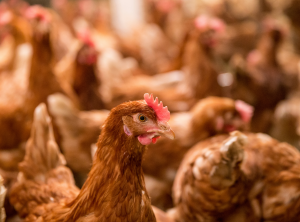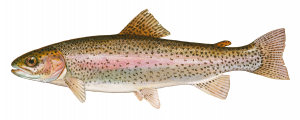Health
FOX IN REHOBOTH BEACH TESTS POSITIVE FOR RABIES – State of Delaware News – news.delaware.gov
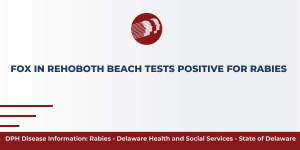

Read the latest news on coronavirus in Delaware. More Info
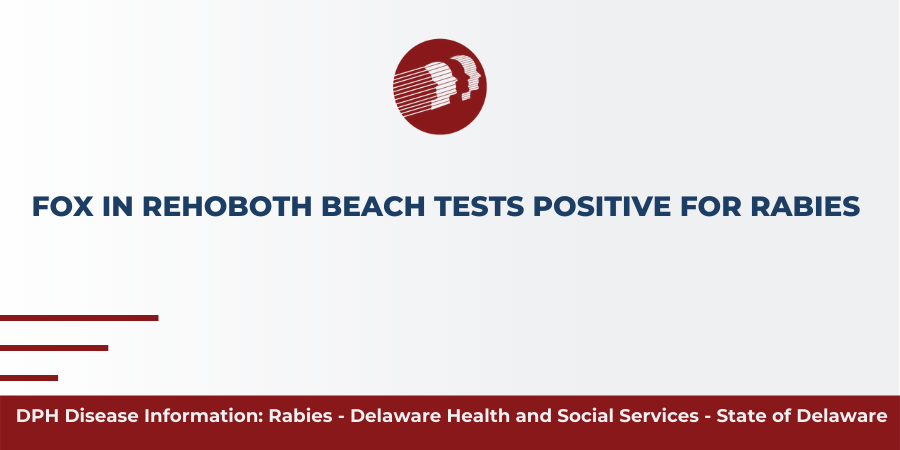

DOVER (March 18, 2021) – The Delaware Division of Public Health (DPH) is advising Sussex County residents, who live or spend time near the area of Bayard Avenue and Philadelphia Street in Rehoboth Beach, of a positive case of rabies in a fox. One individual, a non-Delaware resident, was potentially exposed to the fox in the residential neighborhood. The fox was tested for rabies, which returned positive results on Friday, March 18, 2022. The individual has been contacted to begin post-exposure prophylaxis treatment (PEP).
Since Jan. 1, 2022, the Division of Public Health has performed rabies tests on 46 animals, two of which were confirmed to be rabid, which includes one raccoon and one fox, including this positive animal. DPH only announces those rabies cases for which it is possible the animal had unknown contacts with additional humans or pets. In 2021, DPH performed rabies tests on 188 animals, 19 of which were confirmed to be rabid, which includes one dog, one deer, one fox, one cow, two skunks, three cats, four raccoons and six bats.
Anyone who thinks they might have been bitten, scratched, or encountered a fox in this area should immediately contact their health care provider or call the DPH Rabies Program at 302-744-4995. An epidemiologist is available 24/7. Anyone in the area who thinks a fox may have bitten their pet should call their private veterinarian to have their pet examined and treated, and the exposure reported to the Delaware Department of Agriculture.
Rabies is a preventable disease. DPH recommends that individuals take the following steps to prevent rabies exposure:
- All dogs, cats, and ferrets 6 months of age and older are required by Delaware law to be vaccinated against rabies by a licensed veterinarian.
- Pet owners can reduce the possibility of pets being exposed to rabies by keeping them indoors and not letting them roam free. It is especially important for pet owners who do allow their cats to roam outdoors to vaccinate their pets.
- Do not touch or otherwise handle wild or unfamiliar animals, including cats and dogs, even if they appear friendly.
- Do not keep your pet’s food or water outdoors; bowls can attract wild and stray animals.
- Do not feed feral animals, including cats, as the risk of rabies in wildlife is significant.
- Spaying or neutering your pet may reduce the tendency to roam or fight and, thus, reduce the chance they will be exposed to rabies.
- Keep your garbage securely covered.
- Consider vaccinating livestock and horses as well. It is recommended to consult with your private veterinarian if you have any questions regarding whether your animal(s) should be vaccinated against rabies.
If You Encounter an Animal Behaving Aggressively:
- If you encounter a wild animal behaving aggressively, it is recommended you contact the Delaware Department of Natural Resources and Environmental Control’s (DNREC) Wildlife Section at 302-739-9912 or 302-735-3600. Staff will determine whether it is more appropriate to refer callers to a private nuisance wildlife control operator. A listing of nuisance wildlife control operators can be found at https://wildlifehelp.org/.
- Do not throw items at the animal or make loud banging noises, which may startle the animal and cause it to attack. Instead, your initial response – if the animal is behaving in an aggressive manner or appears to be foaming at the mouth – should be to raise your hands above your head to make yourself appear larger to the animal while slowly backing away from it. If the animal starts coming toward you, raise your voice and yell sternly at it, “Get away!” If all that fails, use any means to protect yourself including throwing an object at the animal or trying to keep it away by using a long stick, shovel, or fishing pole.
- If you encounter a stray or feral domestic animal, such as a cat or dog, behaving aggressively, contact the Office of Animal Welfare at 302-255-4646.
If You Encounter a Sick or Injured Animal:
- To report a sick or hurt wild animal, Delaware residents are asked to contact the DNREC’s Wildlife Section at 302-739-9912 or 302-735-3600. Staff will determine whether it is more appropriate to refer callers to a permitted volunteer wildlife rehabilitator.
- If you encounter a sick stray domestic animal, such as a cat or dog, contact the Office of Animal Welfare at 302-255-4646.
For more information on the DPH rabies program, visit www.dhss.delaware.gov/dhss/dph/dpc/rabies.html or call 1-866-972-9705 or 302-744-4995. For more information on rabies, visit the Centers for Disease Control and Prevention at www.cdc.gov/rabies/.
# # #
Anyone who is deaf, hard of hearing, Deaf-Blind or speech disabled can contact DPH by dialing 711 first using specialized devices (i.e. TTY, TeleBraille, voice devices). The 711 service is free and to learn more about how it works, please visit delawarerelay.com. Delaware Health and Social Services is committed to improving the quality of the lives of Delaware’s citizens by promoting health and well-being, fostering self-sufficiency, and protecting vulnerable populations.
Related Topics: anilmals, bitten, dnrec, DPH Rabies Program, fox, infectious diseases, OAW, rabies, vaccinating, wildlife
<!–
Keep up to date by receiving a daily digest email, around noon, of current news release posts from state agencies on news.delaware.gov.
Here you can subscribe to future news updates.
<!– –>


DOVER (March 18, 2021) – The Delaware Division of Public Health (DPH) is advising Sussex County residents, who live or spend time near the area of Bayard Avenue and Philadelphia Street in Rehoboth Beach, of a positive case of rabies in a fox. One individual, a non-Delaware resident, was potentially exposed to the fox in the residential neighborhood. The fox was tested for rabies, which returned positive results on Friday, March 18, 2022. The individual has been contacted to begin post-exposure prophylaxis treatment (PEP).
Since Jan. 1, 2022, the Division of Public Health has performed rabies tests on 46 animals, two of which were confirmed to be rabid, which includes one raccoon and one fox, including this positive animal. DPH only announces those rabies cases for which it is possible the animal had unknown contacts with additional humans or pets. In 2021, DPH performed rabies tests on 188 animals, 19 of which were confirmed to be rabid, which includes one dog, one deer, one fox, one cow, two skunks, three cats, four raccoons and six bats.
Anyone who thinks they might have been bitten, scratched, or encountered a fox in this area should immediately contact their health care provider or call the DPH Rabies Program at 302-744-4995. An epidemiologist is available 24/7. Anyone in the area who thinks a fox may have bitten their pet should call their private veterinarian to have their pet examined and treated, and the exposure reported to the Delaware Department of Agriculture.
Rabies is a preventable disease. DPH recommends that individuals take the following steps to prevent rabies exposure:
- All dogs, cats, and ferrets 6 months of age and older are required by Delaware law to be vaccinated against rabies by a licensed veterinarian.
- Pet owners can reduce the possibility of pets being exposed to rabies by keeping them indoors and not letting them roam free. It is especially important for pet owners who do allow their cats to roam outdoors to vaccinate their pets.
- Do not touch or otherwise handle wild or unfamiliar animals, including cats and dogs, even if they appear friendly.
- Do not keep your pet’s food or water outdoors; bowls can attract wild and stray animals.
- Do not feed feral animals, including cats, as the risk of rabies in wildlife is significant.
- Spaying or neutering your pet may reduce the tendency to roam or fight and, thus, reduce the chance they will be exposed to rabies.
- Keep your garbage securely covered.
- Consider vaccinating livestock and horses as well. It is recommended to consult with your private veterinarian if you have any questions regarding whether your animal(s) should be vaccinated against rabies.
If You Encounter an Animal Behaving Aggressively:
- If you encounter a wild animal behaving aggressively, it is recommended you contact the Delaware Department of Natural Resources and Environmental Control’s (DNREC) Wildlife Section at 302-739-9912 or 302-735-3600. Staff will determine whether it is more appropriate to refer callers to a private nuisance wildlife control operator. A listing of nuisance wildlife control operators can be found at https://wildlifehelp.org/.
- Do not throw items at the animal or make loud banging noises, which may startle the animal and cause it to attack. Instead, your initial response – if the animal is behaving in an aggressive manner or appears to be foaming at the mouth – should be to raise your hands above your head to make yourself appear larger to the animal while slowly backing away from it. If the animal starts coming toward you, raise your voice and yell sternly at it, “Get away!” If all that fails, use any means to protect yourself including throwing an object at the animal or trying to keep it away by using a long stick, shovel, or fishing pole.
- If you encounter a stray or feral domestic animal, such as a cat or dog, behaving aggressively, contact the Office of Animal Welfare at 302-255-4646.
If You Encounter a Sick or Injured Animal:
- To report a sick or hurt wild animal, Delaware residents are asked to contact the DNREC’s Wildlife Section at 302-739-9912 or 302-735-3600. Staff will determine whether it is more appropriate to refer callers to a permitted volunteer wildlife rehabilitator.
- If you encounter a sick stray domestic animal, such as a cat or dog, contact the Office of Animal Welfare at 302-255-4646.
For more information on the DPH rabies program, visit www.dhss.delaware.gov/dhss/dph/dpc/rabies.html or call 1-866-972-9705 or 302-744-4995. For more information on rabies, visit the Centers for Disease Control and Prevention at www.cdc.gov/rabies/.
# # #
Anyone who is deaf, hard of hearing, Deaf-Blind or speech disabled can contact DPH by dialing 711 first using specialized devices (i.e. TTY, TeleBraille, voice devices). The 711 service is free and to learn more about how it works, please visit delawarerelay.com. Delaware Health and Social Services is committed to improving the quality of the lives of Delaware’s citizens by promoting health and well-being, fostering self-sufficiency, and protecting vulnerable populations.
Related Topics: anilmals, bitten, dnrec, DPH Rabies Program, fox, infectious diseases, OAW, rabies, vaccinating, wildlife
Keep up to date by receiving a daily digest email, around noon, of current news release posts from state agencies on news.delaware.gov.
Here you can subscribe to future news updates.
Health
It's possible to rely on plant proteins without sacrificing training gains, new studies say – The Globe and Mail


At the 1936 Olympics in Berlin, a scientist named Paul Schenk surveyed the eating habits of top athletes from around the world. The Canadians reported plowing through more than 800 grams of meat per day on average; the Americans were downing more than two litres of milk daily.
While there have been plenty of changes in sports nutrition since then, the belief that meat and dairy are the best fuel for building muscle persists. These days, though, a growing number of athletes are interested in reducing or eliminating their reliance on animal proteins, for environmental, ethical or health reasons. A pair of new studies bolsters the case that it’s possible to rely on plant proteins without sacrificing training gains, as long as you pick your proteins carefully.
The standard objection to plant proteins is that they don’t have the right mix of essential amino acids needed to assemble new muscle fibres. Unlike animal proteins, most plant proteins are missing or low in at least one essential amino acid.
In particular, there’s one specific amino acid, leucine, that seems to play a special role in triggering the synthesis of new muscle. It’s particularly abundant in whey, one of the two proteins (along with casein) found in milk. That’s why whey protein is the powdered beverage of choice in gyms around the world, backed by decades of convincing research, which was often funded by the dairy industry.
But one of the reasons whey looks so good may be that we haven’t fully explored the alternatives. A 2018 study by Luc van Loon of the University of Maastricht in the Netherlands, for example, tested nine vegetable proteins including wheat, hemp, soy, brown rice, pea and corn. To their surprise, they found that corn protein contains 13.5 per cent leucine – even more than whey.
Based on that insight, van Loon decided to pit corn against milk in a direct test of muscle protein synthesis. Volunteers consumed 30 grams of one of the proteins; a series of blood tests and muscle biopsies were collected over the next five hours to determine how much of the ingested protein was being turned into new muscle fibres. The results, which appeared in the journal Amino Acids, were straightforward: Despite all the hype about whey, there was no discernible difference between them.
A second study, this one published in Medicine & Science in Sports & Exercise by a team led by Benjamin Wall of the University of Exeter in Britain, had similar findings. Instead of corn, it used a mix of 40 per cent pea, 40 per cent brown rice and 20 per cent canola proteins. Since different plants have different amino acids profiles, mixing complementary proteins has long been suggested as a way overcoming the deficiencies of any single plant protein. Sure enough, the protein blend triggered just as much new muscle synthesis as whey.
On the surface, the message from these studies is straightforward: Plant proteins are – or at least can be – as effective as even the best animal proteins for supporting muscle growth. There are a few caveats to consider, though. One is that the studies used isolated protein powders rather than whole foods. You would need nearly nine cobs of corn to get the 30 grams of protein used in van Loon’s study, compared to just three-and-a-half cups of milk.
Another is that plants are generally harder to digest, meaning that not all the amino acids will be usable. That may not be a problem for healthy young adults consuming 30 grams of protein at once, which is enough to trigger a near-maximal muscle response. But for older people, who tend to have blunted muscle-building responses to protein, or in situations where you’re getting a smaller dose of protein, the details of protein quality may become more important.
Of course, the effectiveness of plant proteins won’t be news to notable plant-based athletes such as ultrarunner Scott Jurek or basketball star Chris Paul – but it’s encouraging to see the science finally begin to catch up.
Alex Hutchinson is the author of Endure: Mind, Body, and the Curiously Elastic Limits of Human Performance. Follow him on Threads @sweat_science.
Health
See how chicken farmers are trying to stop the spread of bird flu – Fox 46 Charlotte
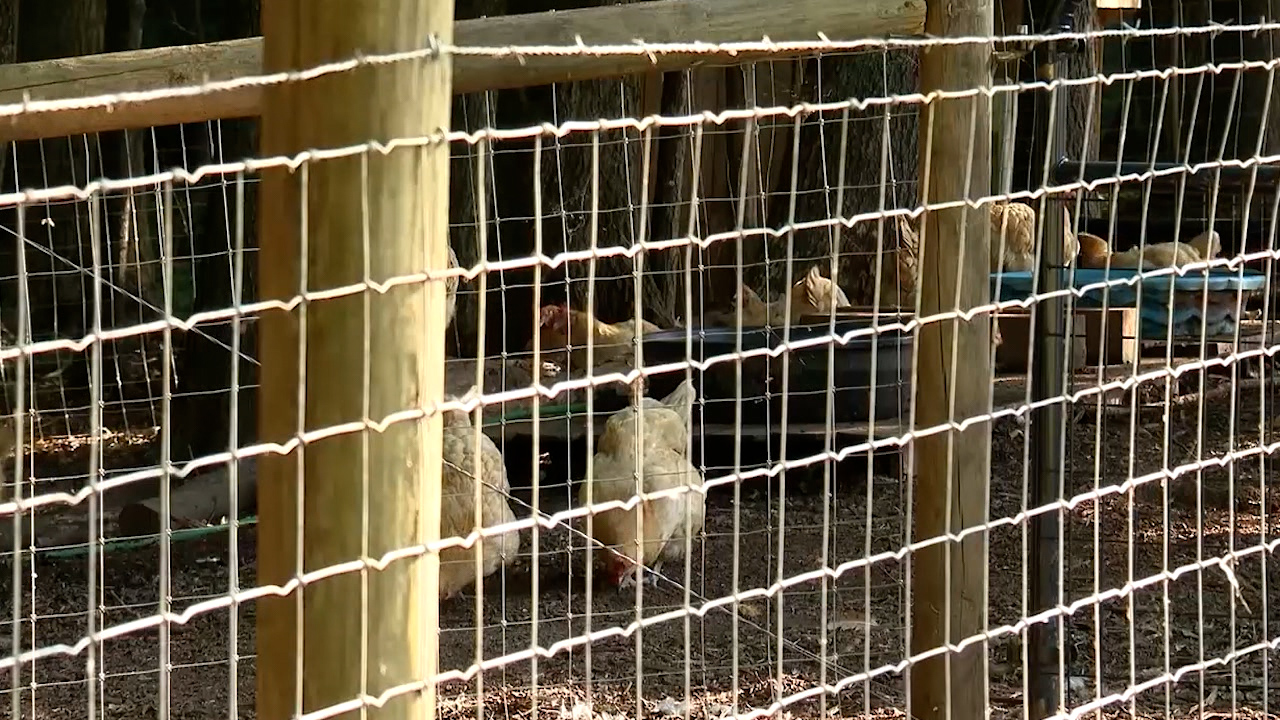

CLOVER, S.C. (QUEEN CITY NEWS) — Poultry farmers across the Carolinas aren’t taking any chances. Many are turning to strict protocols as another wave of bird flu continues to threaten the chicken population across the country.
Since 2022, it is estimated more than 90 million birds have either died from the virus or were killed to prevent further spread in the U.S.
“We try to make them the happiest as possible. We always say a happy chicken is a tasty chicken,” owner of Eden Farms Adam Shumate said.
With their happiness in mid, Shumate also wants to keep his chickens alive and healthy. On his farm in Clover, he has implemented protocols to minimize a potential bird flu outbreak.
“We want to be prepared,” he said. “We feel like the things that we can do to prevent it first is the best case because we don’t want to start from scratch with a whole new flock.”
Because bird flu is commonly spread through bird droppings, Shumate is limiting the number of people coming into contact with his flocks. He says this would minimize the chances of someone walking onto the property with bird droppings on the bottoms of their shoes.
On top of monitoring the chickens closely, Shumate and his staff are constantly cleaning their equipment, including what they wear on their feet.
“We have specific shoes that are just for working with the flock and for when we are taking care of them,” Shumate said.
Other farmers, like Holly Burrell, haven’t let a visitor step foot near her hens in Gastonia for more than two years.
No visitors or outside cars are welcomed, and her chickens are separated in what she calls “tent cities.”
“We don’t want to do that because we want them to live their best life,” Burrell said in a 2022 interview with Queen City News.
Recently, health officials have detected bird flu in other animals like seals, squirrels and dolphins.
Earlier this month, bird flu was detected in one of the state’s dairy cow herds. While concerning, state health officials say the overall risk to the general public remains low.
“I’ve not heard of any cases, zero cases of people being affected by this virus associated with food consumption, milk consumption with egg consumption… any of these products we’re getting from farm animals is not really been associated with any human risk at this point,” said Dr. Michael Martin, director of the Veterinary Division at the N.C. Department of Agriculture and Consumer Services.
As of March 28, at least 80 birds in North Carolina were detected with the virus. Back in York County, Shumate says it all starts with the individual farms.
“When it comes to wildlife and things that that, there is only so much that you can do is be observant,” Shumate said. “Keep a healthy flock that way they can find off the infections that may come about.”
Health
CFIA Monitoring for Avian Influenza in Canadian Dairy Cattle After US Discoveries – Morning Ag Clips –
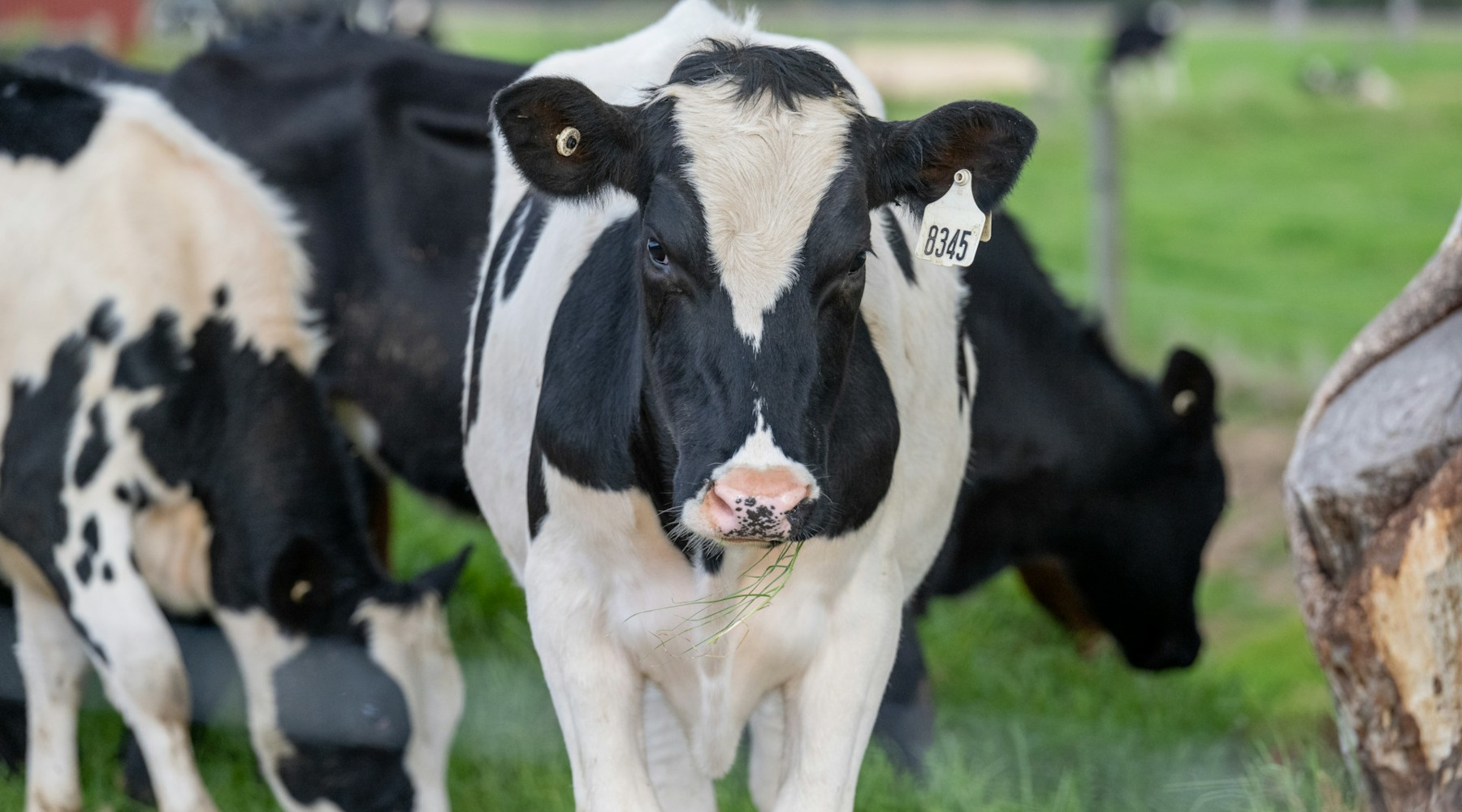

From the field to your inbox, the Weekend Edition of the Morning Ag Clips features stories, trends, and unique perspectives from the farming community. This laid-back edition is great for anyone looking for a fun weekend read.
Morning Ag Clips. All ag. All the time.
-
Business12 hours ago
Honda to build electric vehicles and battery plant in Ontario, sources say – Global News
-



 Science13 hours ago
Science13 hours agoWill We Know if TRAPPIST-1e has Life? – Universe Today
-
Investment16 hours ago
Down 80%, Is Carnival Stock a Once-in-a-Generation Investment Opportunity?
-



 Health13 hours ago
Health13 hours agoSimcoe-Muskoka health unit urges residents to get immunized
-
News17 hours ago
Honda expected to announce multi-billion dollar deal to assemble EVs in Ontario
-
Art23 hours ago
‘Luminous’ truck strap artwork wins prestigious Biennale prize in first for New Zealand – The Guardian
-



 Sports23 hours ago
Sports23 hours agoJets score 7, hold off Avalanche in Game 1 of West 1st Round – NHL.com
-



 Science18 hours ago
Science18 hours agoWatch The World’s First Flying Canoe Take Off





